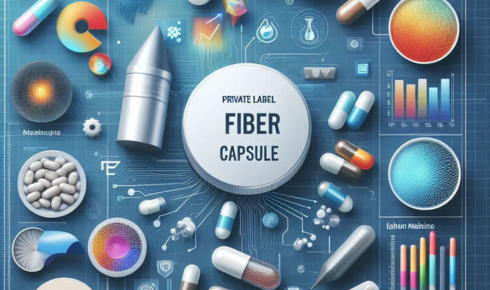Access to clean, pure water is essential for health, everyday convenience, and various industries. As environmental pollution and contamination become more prevalent, the need for pure water filtration systems has significantly increased. These systems, designed to remove contaminants, minerals, and impurities from water, provide safer and more effective water solutions for homes, businesses, and specialized industries.
From advanced purification methods like RO/DI (Reverse Osmosis/Deionization) water purification to portable water purification systems and spot-free water solutions, modern water filtration technology is transforming how we manage water quality. Whether it’s for improving drinking water, achieving a spotless car wash, or ensuring laboratory-grade water, water filtration has become an indispensable part of modern life.
What Is RO/DI Water Purification?
RO/DI (Reverse Osmosis/Deionization) water purification is an advanced filtration process used to create ultra-pure water, often required in applications that demand the highest levels of purity. Reverse osmosis (RO) works by pushing water through a semi-permeable membrane that removes dissolved salts, minerals, and other impurities. The result is water free from contaminants such as heavy metals, chlorine, and bacteria.
The second step, deionization (DI), removes any remaining ions after the reverse osmosis stage. This further purifies the water, making it nearly 100% free of impurities. The combination of reverse osmosis and deionization ensures water is suitable for high-purity applications like laboratory research, semiconductor manufacturing, and high-end aquariums where water quality is paramount.
Benefits of Portable Water Purification Systems
Clean water is not always accessible, especially when traveling, camping, or during natural disasters. Portable water purification systems are designed to address this issue, offering a practical solution for purifying water in remote locations or emergency situations. These compact, lightweight systems use various filtration methods, including RO membranes, activated carbon, and UV sterilization, to remove harmful substances such as bacteria, viruses, and chemicals from untreated water sources.
One of the key advantages of portable water purification systems is their versatility. They can be used to purify water from lakes, rivers, and streams, making them ideal for outdoor enthusiasts and adventurers. Whether you’re hiking in the wilderness or traveling to a region with poor water infrastructure, these systems ensure access to safe drinking water at all times.
Portable water purification units have evolved significantly in recent years, offering more advanced features like solar-powered operation, lightweight design, and greater filtration capacity. As water scarcity and quality continue to be global challenges, portable systems are becoming an essential tool for both personal and emergency use.
Spot-Free Water Systems for Automotive Applications
For car wash businesses and individuals who want their vehicles to have a spotless, streak-free finish, spot-free water systems are essential. Regular tap water often contains minerals like calcium and magnesium, which leave spots and streaks when the water dries on a vehicle’s surface. These water spots not only affect the appearance of a freshly washed car but can also damage the paint and finish over time.
Spot-free water systems are specifically designed to eliminate these minerals and other impurities that cause water spots. These systems typically use a combination of reverse osmosis and deionization to remove dissolved solids, resulting in water that dries without leaving behind any streaks or marks. The result is a spotless, clean finish that enhances the aesthetic appeal of vehicles.
Many professional car wash operations invest in spot-free water systems to ensure high-quality results for their customers. In addition to improving customer satisfaction, these systems help reduce labor costs by minimizing the need for manual drying and touch-ups after a wash. Spot-free water systems also help protect vehicles from long-term damage, enhancing the overall quality and value of the service.
The Role of Car Wash RO Membranes
At the heart of many water purification systems used in car washes is the reverse osmosis (RO) membrane. A Car Wash RO Membrane is a critical component that removes minerals, salts, and other impurities from the water, ensuring it is pure enough to achieve a spotless finish on vehicles. These membranes are designed to operate under high pressure, filtering out even the smallest dissolved particles that can cause water spots.
The reverse osmosis process works by forcing water through the semi-permeable membrane, which only allows water molecules to pass through, while rejecting impurities. Car wash RO membranes are highly effective in producing large volumes of purified water, which is essential for commercial car wash operations. By using RO-purified water, car washes can deliver consistently clean results while reducing water usage and operational costs.
Regular maintenance of RO membranes is crucial to ensuring their longevity and performance. Over time, minerals and other impurities can build up on the membrane, reducing its effectiveness. By routinely cleaning or replacing the membrane, car wash operators can maintain the quality of their water purification system and continue to offer high-quality, spot-free results.
Innovations in Water Filtration Technology
As the need for clean water continues to grow across various sectors, innovations in water filtration technology are providing more efficient and sustainable solutions. RO/DI systems are becoming more energy-efficient, portable water purification systems are evolving to be more user-friendly, and spot-free water systems are becoming increasingly popular in the automotive industry.
One exciting area of development is the improvement in filter materials and membranes. Researchers are constantly exploring new materials that can filter water more effectively, require less maintenance, and last longer. Additionally, the rise of smart water purification systems allows users to monitor water quality and filtration performance in real-time, making it easier to maintain optimal operation and ensure consistently pure water.
As water scarcity, contamination, and the demand for high-purity water grow, the future of water filtration technology will likely focus on improving energy efficiency, reducing waste, and making systems more accessible to both residential and industrial users.
Conclusion
In today’s world, the importance of clean, pure water cannot be overstated. From drinking water to industrial applications, pure water filtration systems such as RO/DI water purification, portable water purification systems, and spot-free water solutions have become vital for ensuring high water quality. Whether it’s ensuring safe water in remote areas, achieving spotless car washes, or providing high-purity water for laboratories, advancements in water filtration technology continue to improve our access to clean water. By investing in these systems, individuals and businesses can ensure they meet the growing need for cleaner, purer water across a wide range of applications.





